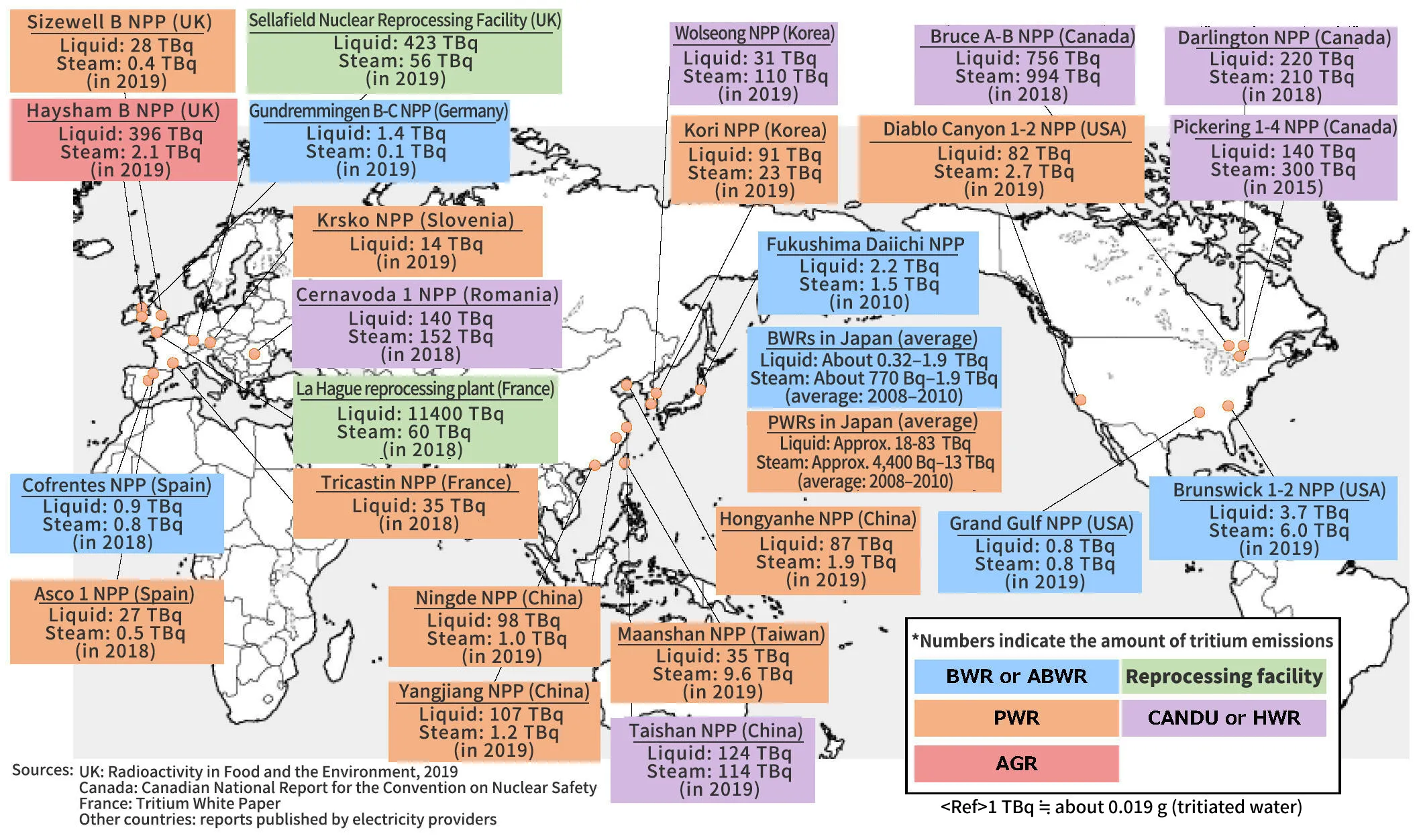FAQ
ALPS treated water, tritium and monitoring
Tritium is disposed of at nuclear power stations around the world (including Japan) in adherence with regulatory standards. Its impact has been monitored, and no issues that can be attributed to tritium have been confirmed. In a report released by the International Atomic Energy Agency (IAEA) in April 2020, the discharge of ALPS treated water stored at the Fukushima Daiichi Nuclear Power Station into the sea is acknowledged to be “technically feasible and would allow the timeline objective to be achieved.” The decision to store the water at the power station to date was made to allow time to fully consider the potential social repercussions and reputational damage that may occur as a result of future actions. The decision to discharge the water into the ocean has been reached based on over six years of experts careful considerations and the compilation of over 4,000 written opinions and other submissions.
ALPS treated water, tritium and monitoring
- Q Is there a chance of ALPS treated water containing other radioactive materials in addition to tritium?
- Q Why discharge the ALPS treated water? Can’t it be stored?
- Q If ALPS-treated water is safe, why is it being stored? Isn’t it only being stored because it’s unsafe?
- Q Is there a chance of ALPS treated water containing other radioactive materials in addition to tritium?
- Q What is tritium?
- Q If tritium is a radioactive material, shouldn’t it be dangerous?
- Q Does tritium become concentrated in fish? Will eating fish be dangerous?
- Q What kind of monitoring is implemented when discharging ALPS treated water into the sea?
- Q When discharging ALPS treated water into the sea, what will happen if the monitoring of the local sea area indicates that the discharged water hasn't sufficiently dispersed or another issue is found?
